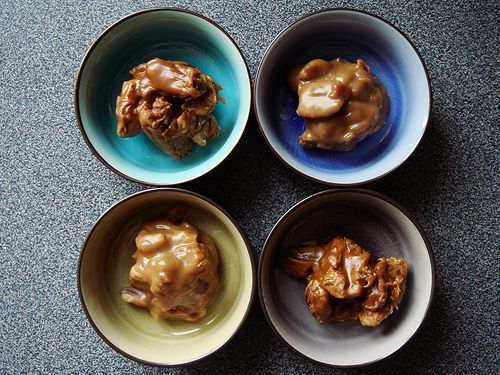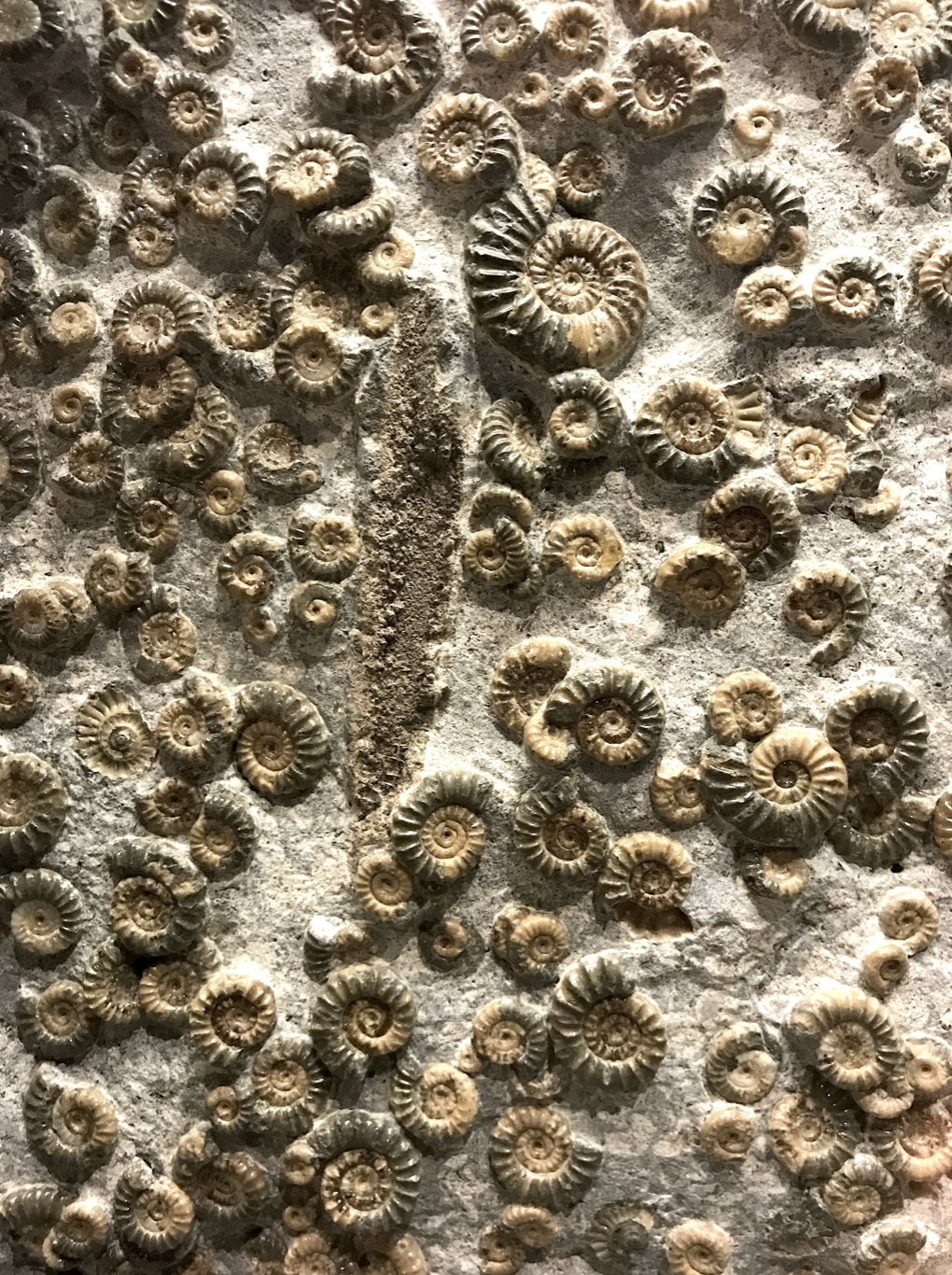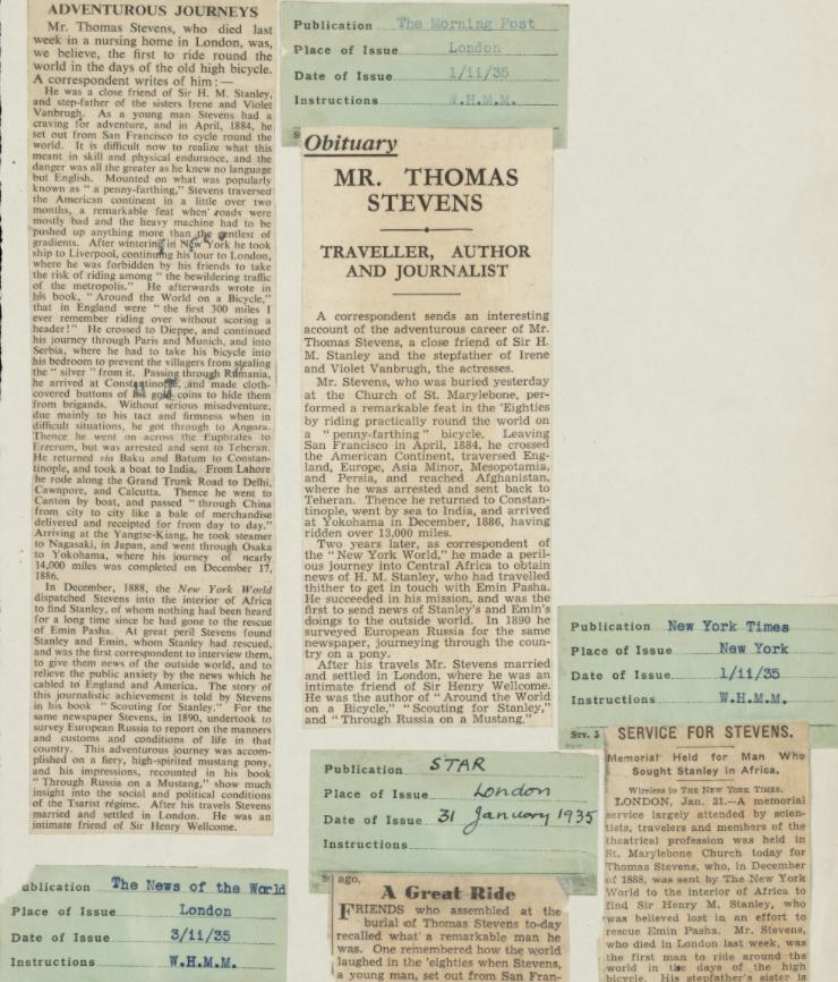The body, the body, the body. Pralines. Walking the dog. Falling! The illustrator sits in her chair. She touches the cat.
This is why we come back. Relatively invisible technology, like invisible pheromones, leads us to the possibility of intimate connection. Leads us to the praline in the mouth. Lands us on the ground, our wrists bent to concrete. We touch. We find we are real.
It is true we can become lost, narrowed in our senses, but we are following the pheromones, which have taught us about possibility.
Technology’s pheromones are not a straight line (if pheromones ever are). At the poetry site I manage, we run writing workshops. This past autumn we ran a workshop called The Writing Life. That is not where I first “met” Elizabeth, but it is where Elizabeth met something deep in herself and turned that back to me with River Street pralines, delivered to my doorstep on Friday.
Now I am wanting to go to Savannah, to walk through River Street’s candy shop doors. I am wanting to understand pralines—how the cream and the sugar and nuts can be so intimately yet simply joined, to create this exquisite experience that melts in my mouth.
When Wendy MacNaughton fell in love with Caroline Paul, she joined her in the same living space, just in time for the cat to go missing. The cat went missing at a terrible juncture; Caroline crashed an experimental plane she was piloting and landed back home with a shattered ankle and a need for deep comfort. There had to be a way to parse the experiences of both intense love and loss. Eventually, Caroline wrote, and Wendy illustrated, a book about the multi-level experience.
In a Design Observer interview, Wendy describes what it’s like to be an illustrator. “It is your hand and it is your brain,” the interviewer reminds Wendy she once said. The interviewer wants to know more. Wendy reveals that she almost physically wraps her “line of sight around an object” as if she’s sculpting it with her thoughts. These invisible thoughts then travel down her arm and into her hand. Thought is, then, something like touch.
The illustrator touched the cat through the act of moving her own body, after feeling the shape of thoughts and, indeed, of a real cat that had found a space in her mind. She touched these thoughts to the page, creating a new physical reality.
On Monday, Elizabeth mentioned via Facebook that she had contracted a serious case of writer’s block. I commented on her status update, giving her my most sage writer’s-block-miracle-cure advice: go for a walk. She did.
It was dark when Elizabeth fell to the ground. I was not there. The dogs were there. I do not know what kind of dogs, just as I do not know the ratio of ingredients, nor the secrets of combination, in the pralines. Maybe nothing is really a straight line. Maybe everything retains some level of mystery for us. Though it was no mystery to Elizabeth now—falling at night, hitting the ground, becoming bruised, twisting her wrists to the point of sprain… this was pain incarnate. A thought in Elizabeth’s mind, about writer’s block, shared over relatively invisible technology, made contact with my mind. I relayed a thought in response. She acted.
When I received the DM from Elizabeth, saying, “From bad to worse,” explaining the fall (and now the injury of the very hands that needed to be producing the elusive writing), I had a physical reaction, a muscular contraction of the self in sorrow. It was as if I myself had sent Elizabeth careening to the concrete. Had I not? The line seemed terribly straight.
Facebook, email, blogs, Twitter. We say they are shallow. We say they are not real. Surely, there is some truth to that, some discomfort, some challenge and possible loss, in existing in the flatness. And yet.
The illustrator sits in the chair. She touches the cat.




